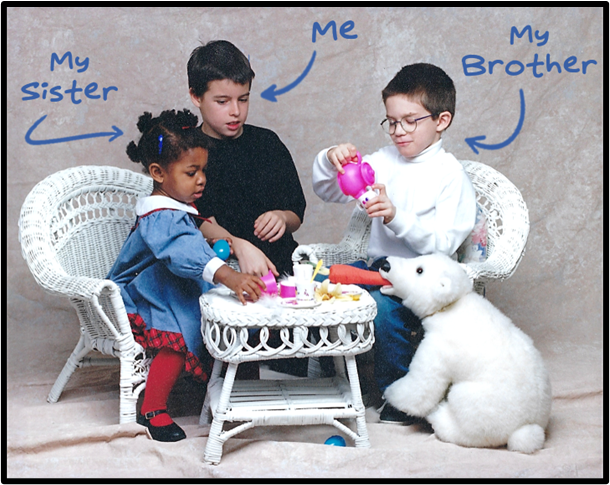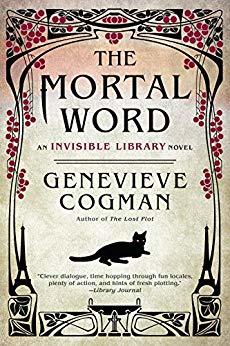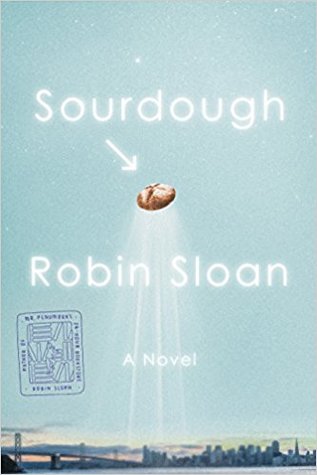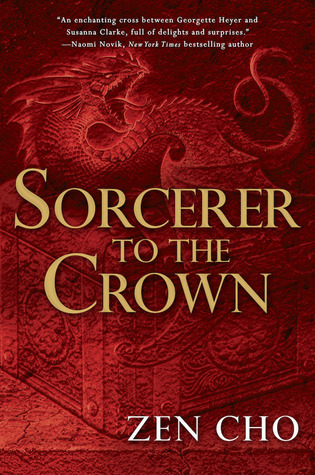I'm excited for you all to meet Michael Roth, picture book author! I met Michael at a writer's conference, and I've been privileged to watch the development of his very cute book, River's New Friend. Michael kindly agreed to answer a few questions about dogs, llamas and writing picture books.
Did you grow up owning dogs? Do you have a favourite childhood memory of a dog?As a kid, I had asthma and a dog allergy. As a result, I grew up afraid of dogs.
Then, one summer, when I was 16, my father (who also did not like dogs) and I took a trip out of town together. While we were gone, the rest of the family held a vote and with the two dissenting votes absent, unanimously decided to get a dog. When we returned home, we were greeted by the new family dog, a miniature schnauzer named Hans Von Schnauzer.
It took me a while to warm up to Hans. Fortunately, schnauzers were a breed of dog that I was less allergic to. Somehow, I was appointed the head dog trainer of the family, which helped me get over my fear and discomfort with dogs. By the time I left for University, I had grown to love Hans quite a lot.
At the time, the moment of getting out of a car and being greeted by a surprise puppy was upsetting, but now looking back and thinking of the good times I had with Hans and with all the dogs in my life that he paved the way for me to love, my first meeting with Hans is now one of my favourite childhood dog memories.
I understand this story was inspired by your own dogs. Tell us about the real River and Willow. How much of your story was based on Willow's actual behaviour?
River (age 7) and Willow (age 4) are both 65-pound goldendoodles. They are half-sisters, so they share many of the same physical features and mannerisms, but at the same time manage to be completely different dogs. River is calmer, more dignified (a bit uppity even), loves people but is “meh” about other dogs, and enjoys sitting outside in the yard for hours watching the birds. Willow is a mischief maker, loves sneaking food from countertops and hunting for used Kleenex tissues in the trash, is over-eager and a bit anxious, and loves all the attention.
In the story, “River’s New Friend”, River is excited when Mom and Dad bring home a new sister, but very quickly realizes that sisters can be challenging when they eat your food, play with your toys, make messes, and take away from your time with Mom and Dad. This is all true to what happened in real life. River was initially very excited, but then learned that having a puppy disrupted her routines and meant sharing food, toys, and attention, which she was displeased with to say the least.
Four years later, River and Willow aren’t really what I would call friends, but they peacefully coexist. They play together occasionally and every once and a while I will even catch them snuggling. To me, they are a good representation of many human sibling relationships where there is “love” but not always “like”.
Part of my inspiration for writing the story was to present a sincere and honest look at this type of sibling relationship and let kids know that the mixed feelings they may have for a sibling are normal and that they are not “bad” for feeling sad, frustrated, or lonely when a new sibling arrives.
Do you have siblings? Are any of them monsters?

I have two, a younger brother and a younger sister. In the story of “River’s New Friend”, River describes Willow as a monster because Willow steals food and toys and takes away from River’s time with her parents. Based on this definition, yes, my siblings were both monsters. My brother especially, who is the older of my siblings and four years younger than me, struggled with health issues and learning disabilities, which meant he required a significant amount of my parents’ attention as a child. This was a difficult adjustment for me.
Funny enough, even though “River’s New Friend” is all about the challenges involved with the arrival of a new sibling, my own experience as an older brother and my relationship with my siblings never once crossed my mind as I was writing it. This was a story about River and Willow, not me. It was only as the story was nearly finished that I realized I had written a story that spoke to many of my own struggles and feelings as a child. This discovery was strangely cathartic and actually helped me process some of my childhood experiences in a new way.
I think that is the cool thing about art, whether we recognize it or not, we are pouring ourselves into it and it becomes a reflection of us. It is one of the reasons I am not overly concerned about artificial intelligence replacing artists as storytellers.
Have you ever met a llama?
I have! My wife had a coworker who lived on a llama farm. Every year, they would throw a giant party called “Llamapalooza”, where you could come and hang out with the llamas. We attended one year and met many llamas.
Did you have any idea how hard it is to write a picture book when you started? How long did this one take you, from first concept to finished book?
I wrote the first draft of “River’s New Friend” in an afternoon. I shared it with a few family members and friends who said, “hey, this is pretty good!” I could have stopped there and said I had written a picture book. Based on my experience reading many self-published picture books, I think this is where a good number of people fall into the trap of calling the book “done” and move ahead with publishing. But I wasn’t happy with it yet.
After writing the first draft, I decided I wanted to improve as a writer before continuing, so I started taking online writing classes, reading books on craft, and watching countless YouTube videos on how to write. I joined a critique group to get honest, unbiased feedback on my writing. I revised the story again and again. Hired a professional editor and revised it some more. By the time the story was finished, I had been working on it for a year and a half, not including the year off I took to level up as a writer.
Did you write stories when you were a kid? What were your favourite kids books?
Nope. Not at all. I didn’t start writing until I was 34 years old, which makes me quite an outlier as a professional writer.
My favorite kid’s books were a series of middle grade sports mysteries written by Matt Christopher. The protagonists were always some young athlete investigating a strange happening that was impacting their team. Sometimes the stories were even a bit supernatural, like a magic goal-scoring hockey stick or a batter who could only hit home runs. As a kid who loved sports, I read these books over and over again.
What's one thing you wished you had known before you started the self-publishing process?
Don’t worry so much about social media. I spent a year trying to develop Instagram and TikTok accounts in advance of my book launch, hoping it would be helpful in marketing the book. But social media algorithms are fickle, the sites are unreliable ways to reach your target audience, and just because you have “followers” it doesn’t mean you have potential customers.
At this point, after a year of work and the lucky break of having a video go viral, I have 4,200 Instagram followers. But I can only point to a couple of book sales that have come from my Instagram marketing.
If you enjoy social media and do it well, then by all means, lean into it and use it to your advantage. But if it isn’t something you enjoy or that comes naturally to you, your time and energy will be better spent writing books than composing social media posts. And most importantly, never feel guilty for not doing social media if it isn’t something you want to do, your writing career will go on just fine without it, I promise.
Why do you think llamas are so appealing?
First of all, they are fluffy and humans, in general, are a big fan of fluffiness. Second, they have a comical appearance. They look like sheep doing a giraffe impression. And their faces have a dopey cuteness that makes them look like they are perpetually in a state of having just woken up from a nap. Third, we have all fallen for the pro-llama propaganda pushed on us by Disney’s “Emperor’s New Groove” which depicts llamas as a vehicle for spiritual redemption of the morally bankrupt, when in reality, not a single Incan emperor was ever redeemed through llama transformation (a seldom known fact).
What did you love most about the whole writing-publishing process? What was the hardest thing?
There were several moments in the writing and illustration process where things felt like they just clicked into place. During writing, my story was feeling broken, but then I tried moving a piece from the end to the beginning and suddenly everything worked. That shift from “it’s not working” to “that’s it!” was the coolest moment of my writing career to date. There were similar moments during illustration where my illustrator, Zoe, would send me a character sketch or an storyboard for a page and I would have a sense of, “yep, that’s exactly it.” Those were the moments I loved the most.
The hardest thing about publishing was overcoming some of the self-doubt, much of which is tied to my decision to self-publish the book. When you traditionally publish a book, your work passes through several gatekeepers: a literary agent, editor, the publisher’s internal marketing team, etc. and each time you pass one of these gatekeepers, it can serve as a validation of your writing. An industry expert gave it their stamp of approval as being “good enough”. But when you are self-publishing, you don’t receive that same validation. To compensate, I surrounded myself with critique partners, beta readers, and a professional editor so that I would receive honest feedback and hopefully, once the book was good enough, validation that it was ready for publishing.
Honestly, even now with the book completed, I still struggle with self-doubt. I worry if the story is good enough and how readers will respond. But I tell myself that I put in the work, listened to and incorporated feedback from smart and knowledgeable sources, and made the best book I could make, and I can feel proud of what I created.
Would you consider writing a spin-off series starring Rhama the llama?
One of the things that has surprised me about the early response to the picture book is the degree to which readers are enthralled with River’s friends in the story. The list of friends includes Basanti the shy bunny, Kameko the hungry cat, Earl the overwhelmed squirrel, Gustavo the grumpy goose, and Rhama the sleepy llama. Already, I have had requests for spinoff stories about the goose, the squirrel, and the llama. Spin-off books were never a consideration when I was writing the story, and the fact that people are asking for them (even if jokingly) is a testament to the incredible job my illustrator did bringing these side characters to life. Who knows, in the future there may be an extended River-verse with spinoff stories for everyone, including the llama.
Michael currently has a Kickstarter running to fund publishing
River's New Friend. If you're interested in the book, or just interested in what a picture book Kickstarter looks like, check it out
here. (It ends on April 15, so you have a week left!)
As part of the Kickstarter, Michael has organized a book donation drive to get donated copies of "River's New Friend" into the hands of kids and teachers in low-income communities. In addition to being able to pre-order a copy of "River's New Friend" for yourself, there is an option on the Kickstarter page to purchase copies of the book when will then be donated to a preschool or childcare center. If you would like to contribute, look for reward tiers on the Kickstarter page that mention a "Donation Book" in the description."






















































